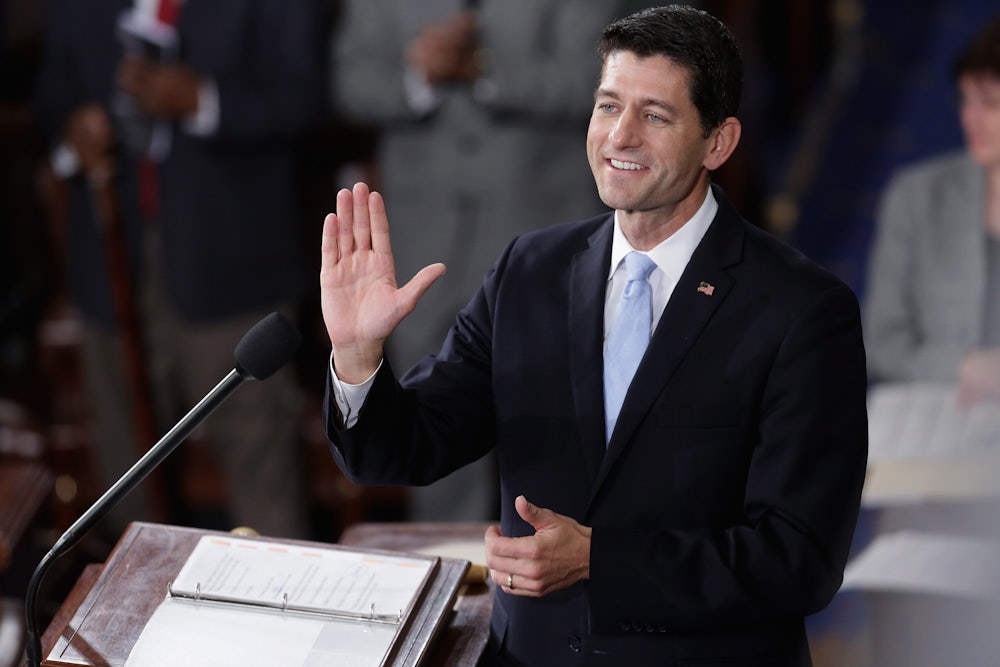In their desperation to salvage the American Health Care Act, House Republicans adopted a provision that would allow states to waive Affordable Care Act rules prohibiting insurers from price-gouging sick people and selling plans that don’t cover basic benefits like hospitalization, doctor’s visits, and maternity care.
By addressing the objections of its most conservative members, they solved a political problem within the House GOP conference but created a new political problem with the broader public, which overwhelmingly believes insurance companies shouldn’t be allowed to discriminate against people with pre-existing conditions.
House Republicans have tried to address this political problem, in turn, by lying about it outright. “People will be better off, with pre-existing conditions, under our plan,” House Speaker Paul Ryan insisted last month. President Donald Trump said these protections would be “guaranteed.”
VERIFIED: MacArthur Amendment strengthens AHCA, protects people with pre-existing conditions. https://t.co/6W7bDEO40r
— Paul Ryan (@SpeakerRyan) May 2, 2017
Republicans knew this was untrue when they passed the bill, and we know they knew it was untrue, because they hustled it to a floor vote before the nonpartisan Congressional Budget Office had a chance to publish an analysis of its impact on health insurance coverage.
That impact analysis arrived on Wednesday. On a top-line level, it finds the effects of the updated AHCA would be broadly similar to the original draft of the legislation—14 million would lose their insurance right away and, relative to the Obamacare baseline, 23 million fewer people would be insured after 10 years. But now the CBO notes that many of those uninsured would be sick people driven out of the markets by price discrimination.
Fully one-sixth of the population, CBO analysts conclude, live in states that would likely waive essential health benefits and pre-existing protection rules. In these states, they believe healthy people would voluntarily opt in to underwritten plans, which take into account a patient’s medical history, leaving the pooled-risk market filled with high-risk consumers, and thus unstable.
“Because many healthy individuals would be able to obtain plans with underwritten premiums as long as they remained healthy, CBO and JCT anticipate that less healthy people or those with preexisting medical conditions would opt for community-rated premiums and that those premiums would rise over time,” the report states. “Eventually, CBO and JCT estimate, those premiums would be so high in some areas that the plans would have no enrollment. Such a market would be similar to the nongroup market before the enactment of the ACA, in which premiums were underwritten and plans often included high deductibles and limits on insurers’ payments and people with high expected medical costs were often unable to obtain coverage.”
“[P]eople who are less healthy (including those with preexisting or newly acquired medical conditions) would ultimately be unable to purchase comprehensive nongroup health insurance at premiums comparable to those under current law, if they could purchase it at all,” the report adds. And those who do buy insurance will find that “out-of-pocket spending on maternity care and mental health and substance abuse services could increase by thousands of dollars in a given year for the nongroup enrollees who would use those services.”
House Republicans’ health care bill would gut pre-existing conditions protections for one-sixth of the population. And they just flatly lied about it.
